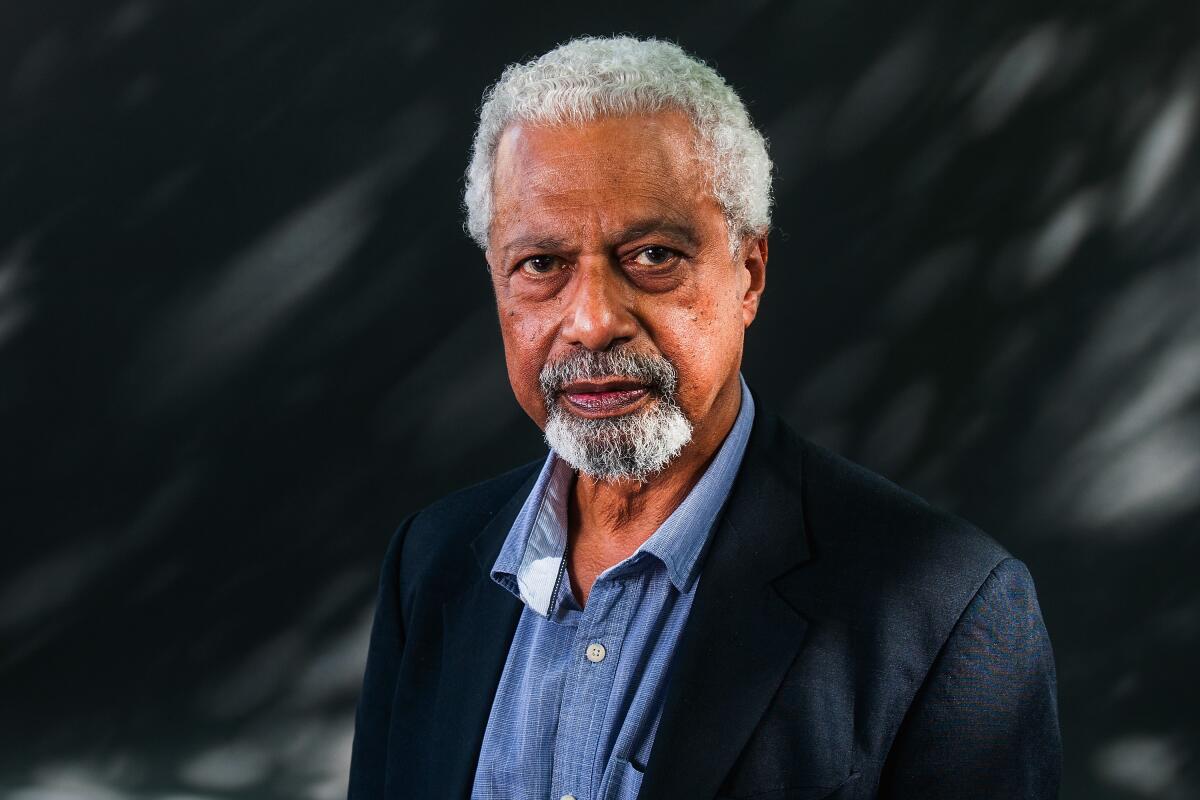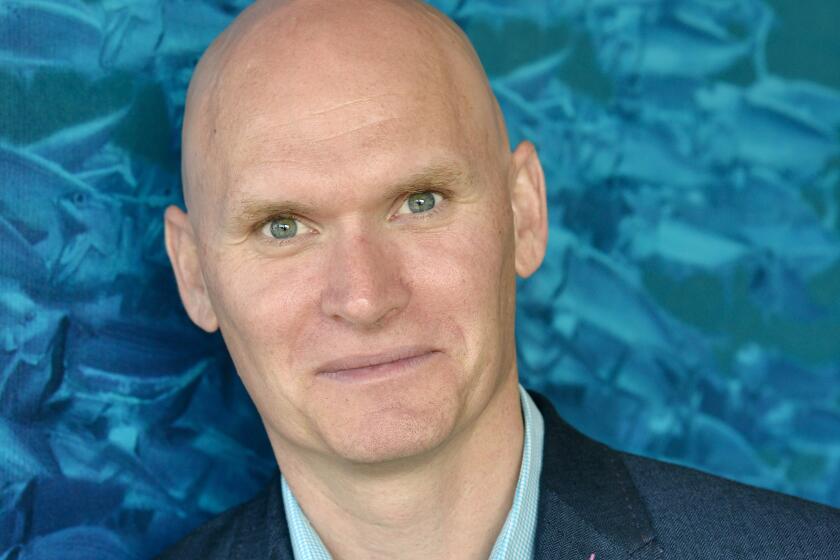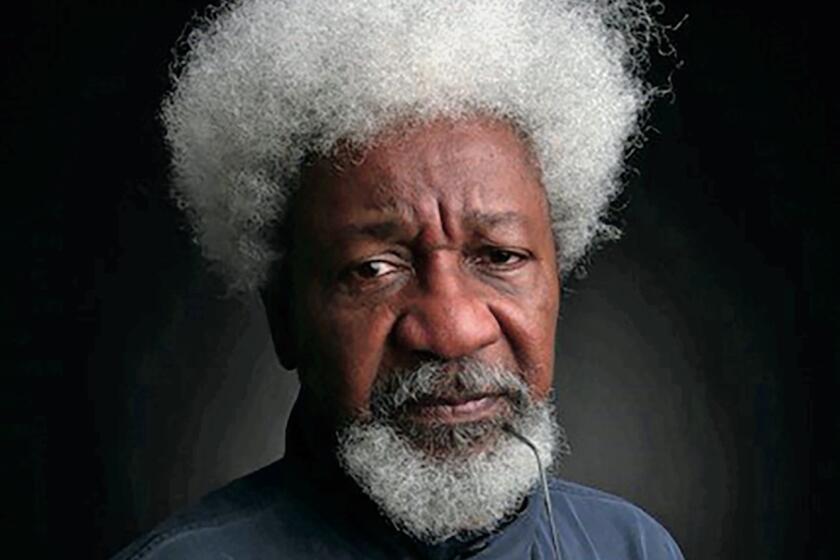Tanzanian writer Abdulrazak Gurnah wins Nobel Prize for literature

STOCKHOLM â Tanzanian writer Abdulrazak Gurnah, whose experience of crossing continents and cultures has fed his novels about the effect of migration on individuals and societies, won the Nobel Prize for literature Thursday.
Gurnah joins the ranks of such illustrious recipients as Toni Morrison, Kazuo Ishiguro, Wole Soyinka and Gabriel GarcĂa MĂĄrquez.
The Swedish Academy said Gurnah was honored for âhis uncompromising and compassionate penetration of the effects of colonialism and the fates of the refugee in the gulf between culture and continents.â
âGurnahâs dedication to truth and his aversion to simplification are striking,â the academy said. âHis novels recoil from stereotypical descriptions and open our gaze to a culturally diversified East Africa unfamiliar to many in other parts of the world.â
Gurnah, who recently retired as a professor of post-colonial literature at the University of Kent, in southeast England, got the call from the academy in the kitchen of his home.
âIâm absolutely excited,â he told the Associated Press. âI just heard the news myself.â
Announced on Tuesday, the 2021 National Book Awards finalists include Lauren Groff, Anthony Doerr and Hanif Abdurraqib.
Born in 1948 on the island of Zanzibar, now part of Tanzania, Gurnah moved to Britain as a teenage refugee in 1968, fleeing a repressive government that persecuted the Arab Muslim community to which he belonged. He has said he âstumbled intoâ writing after arriving in England as a way of exploring both the loss and liberation of the immigrant experience.
He is the author of 10 novels, including âMemory of Departure,â âPilgrims Way,â âParadiseâ (shortlisted for the Booker Prize in 1994), âBy the Seaâ and âDesertion.â The academy said Gurnahâs 2020 book, âAfterlives,â was marked by the same intellectual passion he showed when he began writing as a 21-year-old.
âBy the Seaâ was shortlisted for the Los Angeles Times Book Prize in 2001.
In a 2005 story on Gurnahâs novel âDesertion,â former Times critic Richard Eder noted that âGurnahâs work has been overshadowed by that of more powerful writers of South Asian origin â Michael Ondaatje, Salman Rushdie, Arundhati Roy, Rohinton Mistry â but it has a subtle if sometimes stiff poignancy that has won it attention, though more in Britain than here.â
None of those better-known writers has won the Nobel Prize. Neither has Ngugi Wa Thiongâo, a Kenyan writer and former political prisoner, now 83, whose name comes up perennially as a candidate.
Desertion A Novel Abdulrazak Gurnah Pantheon: 266 pp., $23
Gurnahâs themes of abandonment, Eder continued, channel âthe cultural and social marooning of a generation brought up to think of itself as part of the British version of Western culture and order, only to find that as exiles ⌠they have been set apart, condescended to and worse.â
Many of Gurnahâs works explore what he has called âone of the stories of our timesâ: the profound effect of migration both on uprooted people and the places they make their new homes.
Anders Olsson, chairman of the Nobel Committee for Literature, called him âone of the worldâs most prominent postcolonial writers.â He said it was significant that Gurnahâs roots were in Zanzibar, a place that âwas cosmopolitan long before globalization bonus.â
Well, Shakespeare, heâs in the alley Speaking to some French girl Who says she knows me well He was the kid on the coffee house stage growling out songs from behind a guitar that seemed to weigh more than he did.
âHis work gives us a vivid and very precise picture of another Africa not so well-known for many readers, a coastal area in and around the Indian Ocean marked by slavery and shifting forms of repression under different regimes and colonial powers: Portuguese, Indian, Arab, German and the British,â Olsson said.
He added that Gurnahâs characters âfind themselves in the gulf between cultures ⌠between the life left behind and the life to come, confronting racism and prejudice, but also compelling themselves to silence the truth or reinventing a biography to avoid conflict with reality.â
Gurnah, whose native language is Swahili but who writes in English, is only the sixth African-born writer to be awarded the Nobel for literature, which has been dominated by European and North American writers since the prize was founded in 1901. He is the first winner from sub-Saharan Africa since Soyinka in 1986.
Sign up for our Book Club newsletter
Get the latest news, events and more from the Los Angeles Times Book Club, and help us get L.A. reading and talking.
You may occasionally receive promotional content from the Los Angeles Times.
News of the award was greeted with excitement in Zanzibar, where those who knew Gurnah described him as soft-spoken and modest.
âThe reaction is fantastic. Many are happy, but many donât know him, though the young people are proud that heâs Zanzibari,â said Farid Himid, who described himself as a local historian whose father had been a teacher of the Quran to the young Gurnah. âI have not had the chance to read any of his books, but my family talked about it.â
Gurnah didnât often visit Zanzibar, he said, but he has suddenly become the talk of young people in the semiautonomous island region.
âAnd many elder people are very, very happy â also me, as a Zanzibari. Itâs a new step to make people read books again, since the internet has taken over,â Himid said.
Poet Louise GlĂźck wasnât ready for her early-morning interview about winning this yearâs Nobel Prize in literature. But her reaction was certainly amusing.
Favorites for the literature prize this year, according to British bookmakers, had included Thiongâo, French writer Annie Ernaux, Japanese author Haruki Murakami, Canadaâs Margaret Atwood and Antiguan American writer Jamaica Kincaid.
Last yearâs prize went to American poet Louise GlĂźck for what the judges described as her âunmistakable poetic voice that with austere beauty makes individual existence universal.â
GlĂźck was a popular choice after several years of controversy. In 2018, the award was postponed after sex-abuse allegations rocked the Swedish Academy, the secretive body that chooses the winners. The awarding of the 2019 prize to Austrian writer Peter Handke caused protests because of his strong support for the Serbs during the 1990s Balkan wars.
The prestigious award comes with a gold medal and 10 million Swedish kronor (more than $1.14 million). The prize money comes from a bequest left by the prizeâs creator, Swedish inventor Alfred Nobel, who died in 1896.
After a brutal year of economic uncertainty, booksellers in L.A. are expecting a full recovery. But the June 15 reopening is reigniting safety concerns.
On Monday, the Nobel Committee awarded the prize in physiology or medicine to California scientists David Julius and Ardem Patapoutian for their discoveries into how the human body perceives temperature and touch.
The physics prize was awarded Tuesday to three scientists whose work found order in seeming disorder, helping to explain and predict complex forces of nature, including climate change.
Benjamin List and David W.C. MacMillan were named winners of the Nobel Prize in chemistry Wednesday for finding an easier and environmentally cleaner way to build molecules that can be used to make compounds, including medicines and pesticides.
The peace prize will be announced Friday and the award for economics Monday.
The Times contributed to this report.
The Nigerian writer, the first sub-Saharan winner of the Nobel Prize, discusses âChronicles from the Land of the Happiest People on Earth.â
More to Read
Sign up for Essential California
The most important California stories and recommendations in your inbox every morning.
You may occasionally receive promotional content from the Los Angeles Times.













